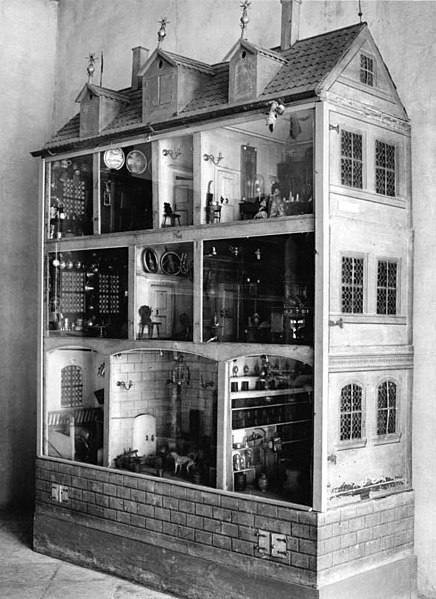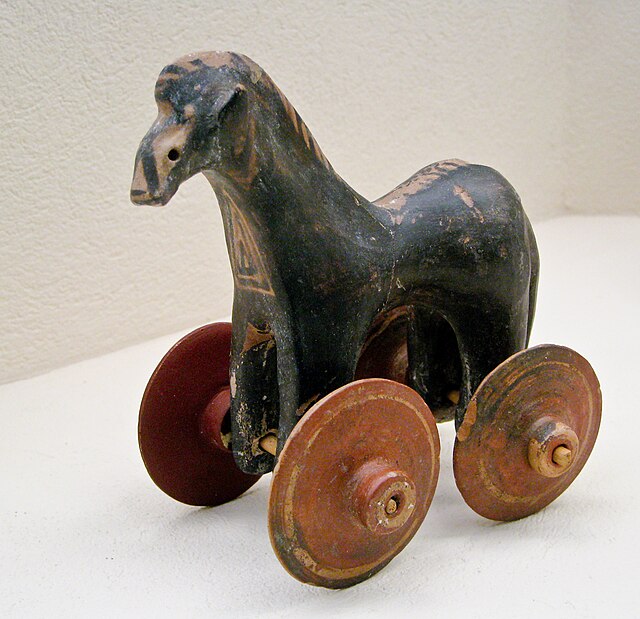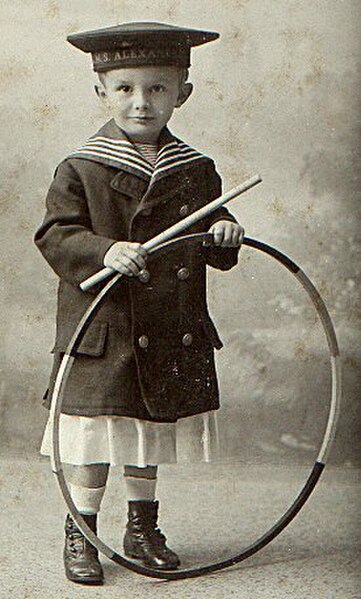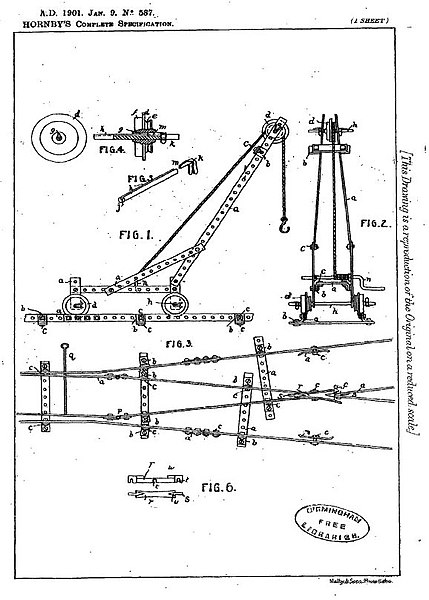A dollhouse or doll's house is a toy house made in miniature. Since the early 20th century dollhouses have primarily been the domain of children, but their collection and crafting is also a hobby for many adults. English-speakers in North America commonly use the term dollhouse, but in the United Kingdom and other English-speaking countries the term is doll's house. They are often built to put dolls in.
Tudor style doll's house circa 1930
The Nostell Doll's House in West Yorkshire, England, This one-of-a kind miniature house was handcrafted in the 1730s. As that time, doll's houses were not considered to be toys; rather, they were called "baby houses" and used to teach girls how to run a household.
A 17th century Nuremberg, Germany dollhouse
Dutch cabinet dollhouse of Petronella de la Court, Amsterdam 1670-1690 on display at Centraal Museum
A toy or plaything is an object that is used primarily to provide entertainment. Simple examples include toy blocks, board games, and dolls. Toys are often designed for use by children, although many are designed specifically for adults and pets. Toys can provide utilitarian benefits, including physical exercise, cultural awareness, or academic education. Additionally, utilitarian objects, especially those which are no longer needed for their original purpose, can be used as toys. Examples include children building a fort with empty cereal boxes and tissue paper spools, or a toddler playing with a broken TV remote control. The term "toy" can also be used to refer to utilitarian objects purchased for enjoyment rather than need, or for expensive necessities for which a large fraction of the cost represents its ability to provide enjoyment to the owner, such as luxury cars, high-end motorcycles, gaming computers, and flagship smartphones.
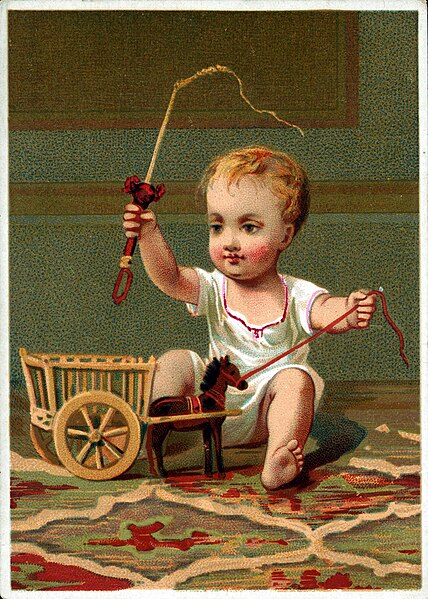
19th century illustration of a child playing with a toy horse and cart
Little horse on wheels, Ancient Greek children's toy. From a tomb dating 950–900 BCE, Kerameikos Archaeological Museum, Athens
A boy with a hoop. Hoops have long been a popular toy across a variety of cultures.
Frank Hornby's 1901 patent number GB190100587A for what later became known as Meccano



